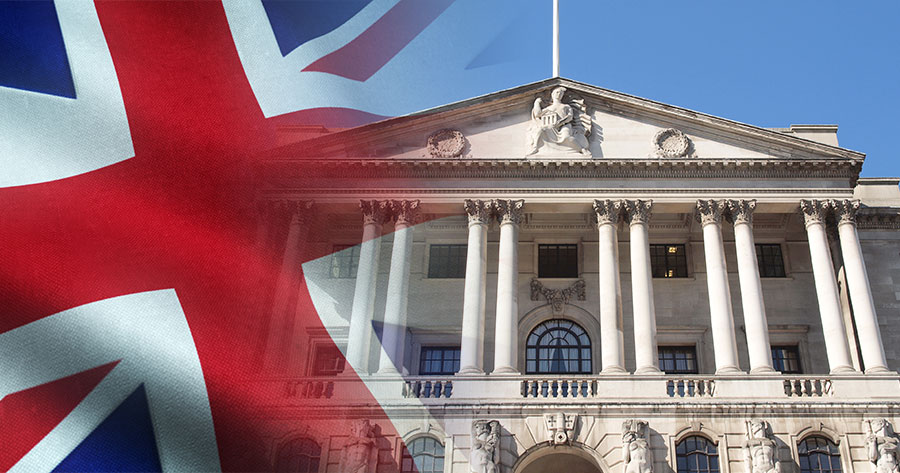The Bank of England will have to raise interest rates further to control surging prices and there are risks that UK’s worse inflation crisis in decades will likely to take longer to ease fully, according to Deputy Governor Dave Ramsden of Bank of England.
In an interview with Bloomberg, Ramsden said the jobs market could prove stronger than the BOE anticipates, feeding more persistent price gains. Inflation is already at 7%, and likely to top 10% before the end of the year.
In response, the BOE hiked rates to 1% last week — a fourth straight increase — despite also warning of a sharp economic slowdown later this year.
While Ramsden declined to comment on market expectations that show rates hitting 2.5% by the middle of 2023, he said that investors, like him, were concerned about upside inflation risks.
“Certainly on the basis of my current assessment of prospects, we’re not there yet in terms of how far monetary policy has to tighten,” he said. “I‘m still very, very supportive of the forward guidance that there may well need to be further tightening in the coming months.”
June “will be a chance to take stock — in this extraordinary period we really are learning things everyday,” he said. “I don’t think we’ve gone far enough yet on bank rate, but I do think that what we’ve already done is having an impact.”
BOE’s forecasts show that if rates rise in line with market pricing then inflation will fall to 6.7% this time next year and to just 1.3% in 2025. But unemployment will climb to 5.5% in that period.
Ramsden dismissed the idea that the BOE was “talking down” the economy with gloomy forecasts that would a make a recession a self-fulfilling prophecy.
“Given what we know about the UK labor market, I wouldn’t be surprised if it turned out to be a bit tighter,” he said. “I think there are upside risks on inflation the medium term.”





